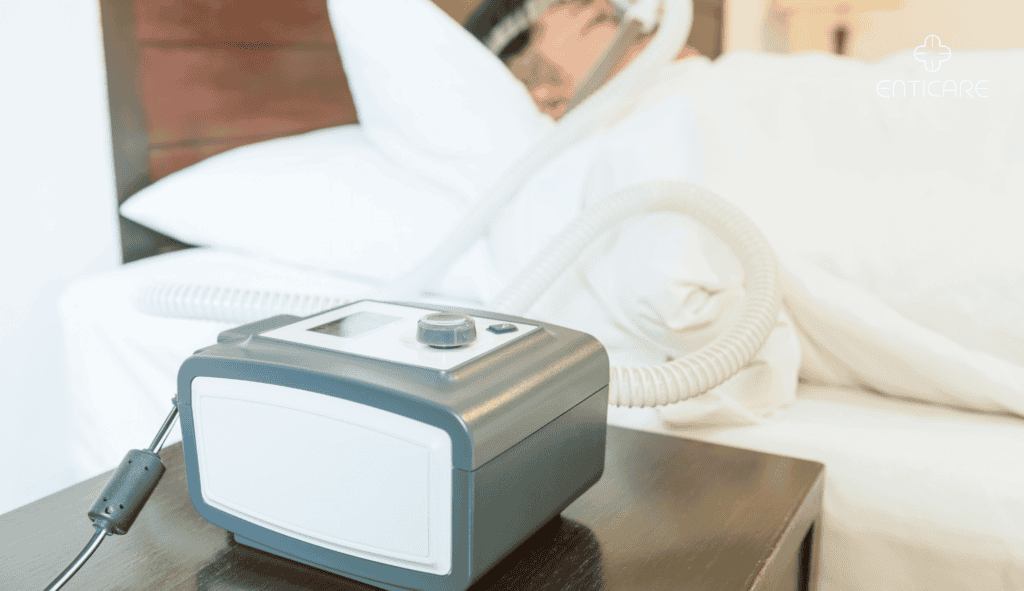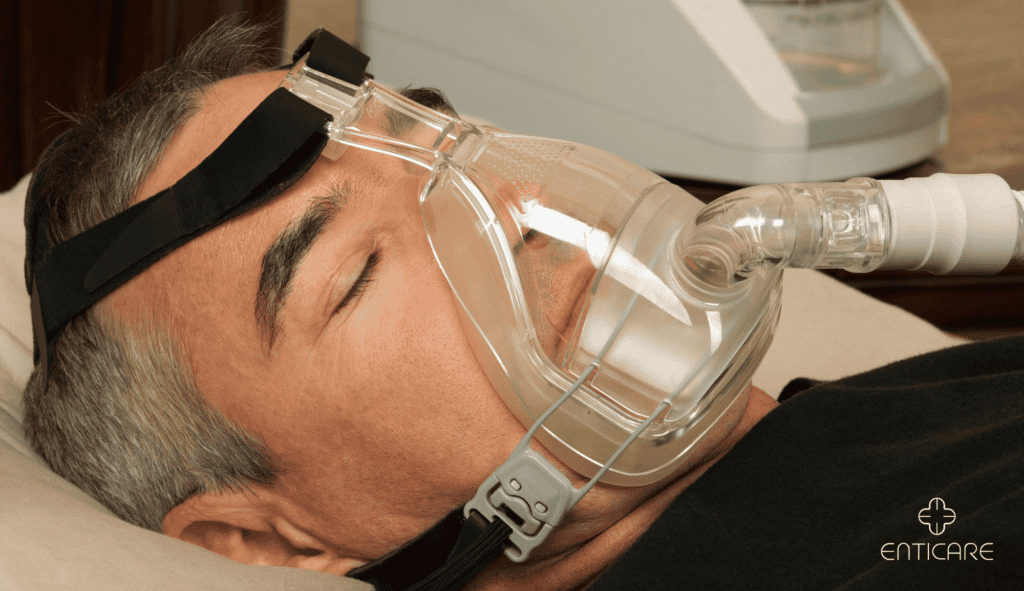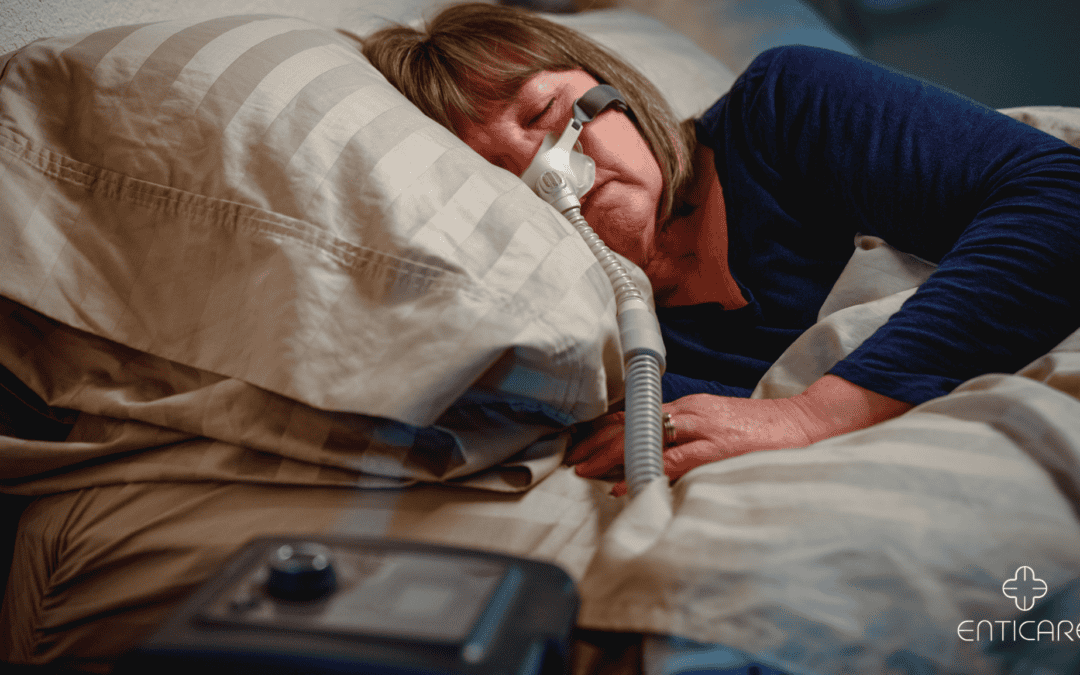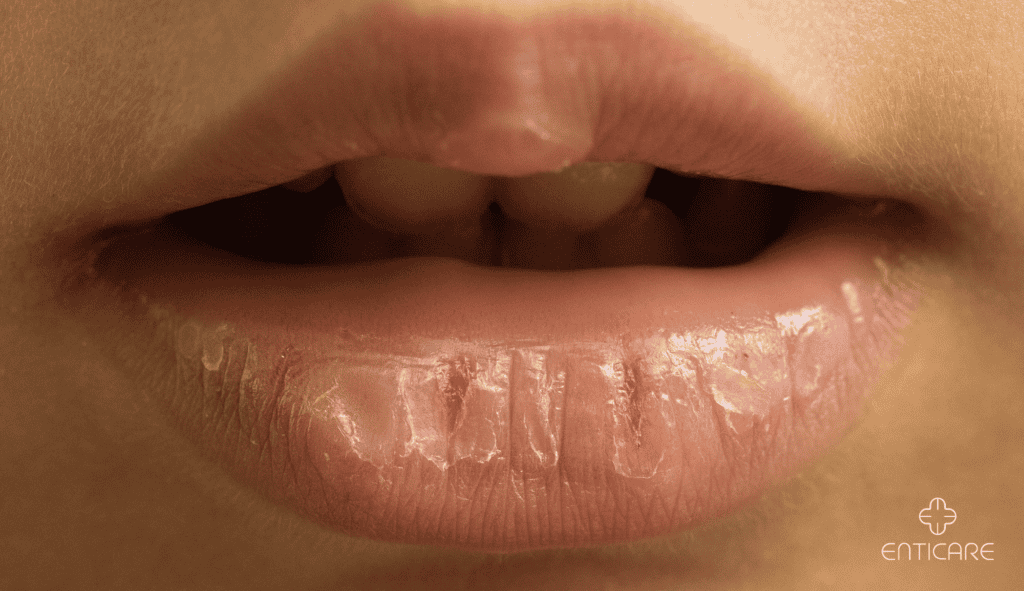Does waking up with a parched mouth disrupt your sleep and make you dread using your CPAP machine? You’re not alone! Dry mouth is a common side effect of CPAP therapy, but it doesn’t have to be your nightly reality. There are several ways to address dry mouth, such as proper mask fitting, increased humidifier settings, and additional accessories like chinstraps and mouth tape.
If you’re a CPAP user, you’re likely familiar with the nightly battle against dry mouth. The constant flow of air can wreak havoc on your oral moisture levels, leaving you waking up with a parched, uncomfortable feeling. But there’s a built-in solution hiding within your CPAP machine: humidification, often referred to as the humidifier or water tank on some devices.
Humidification is a game-changer for CPAP users struggling with dry mouth. This feature adds warmth and moisture to the air you breathe, mimicking the natural humidification that occurs in your nose and throat. The result? A more comfortable sleep experience and a significant reduction in dry mouth.

Understanding CPAP-Induced Dry Mouth
- The Culprit: Forced Air: Continuous positive airway pressure (CPAP) machines deliver pressurized air to keep your airway open during sleep. While this air is essential for treating sleep apnea, it can also dry out your mouth and throat as it bypasses your natural humidification process. This is especially profound in the more arid climates.
- Reduced Saliva Production: Sleep itself can decrease saliva production, further exacerbating the dryness caused by CPAP therapy.
- Mouth Breathing: Some CPAP users may unconsciously switch to mouth breathing due to sleeping position, shallow breathing or nasal congestion. This bypasses the natural humidifying function of the nose, worsening dry mouth.
Causes of CPAP Dry Mouth
Dry mouth is a common side effect of using a CPAP machine, and it can be caused by various factors. Understanding the causes of CPAP dry mouth is crucial to finding effective solutions.
How CPAP Machines Can Cause Dry Mouth
CPAP machines can cause dry mouth due to the constant flow of air through the mask, which can dry out the mouth and throat. The air pressure from the CPAP machine can also cause the mouth to fall open, leading to mouth breathing and dry mouth. Additionally, the type of mask used can contribute to dry mouth. Nasal masks, which only cover the nose, are more likely to cause dry mouth than full-face masks, which cover both the nose and mouth.
Other Factors Contributing to Dry Mouth
Other factors can contribute to dry mouth, including mouth breathing, nasal congestion, and a poorly fitting CPAP mask. Mouth breathing can lead to dry mouth, especially in children with obstructive sleep apnea. Nasal congestion can cause mouth breathing, which can lead to dry mouth. A poorly fitting CPAP mask can cause air leaks, which can lead to dry mouth and nasal passages.
How Humidification Combats and Prevents CPAP Dry Mouth
- Moisture in the Air: Humidification adds moisture to the air you breathe through your CPAP machine, which helps to prevent CPAP dry mouth. This added moisture helps to counteract the drying effects of the pressurized air, keeping your mouth and throat feeling more comfortable.
- Mimicking Nature: By adding moisture, humidification mimics the natural humidification process that occurs in your nose and throat. This helps to maintain a healthy level of moisture in your mouth throughout the night.
Benefits of Using Humidification with CPAP Therapy
- Reduced Dry Mouth: The primary benefit of CPAP treatment with humidification is a significant reduction in dry mouth, leading to a more comfortable sleep experience.
- Improved Sleep Quality: When you’re not constantly battling dryness, you’re more likely to sleep soundly throughout the night.
- Lessened Throat Irritation: Dryness can irritate the throat, leading to discomfort and coughing. Humidification can help soothe the throat and minimize irritation.
- Reduced Mask Leaks: A properly humidified mask creates a better seal on your face, minimizing leaks and ensuring effective CPAP therapy.

Getting the Most Out of Humidification
- Consult Your Doctor: Discuss using humidification with your doctor, as clinical sleep medicine often emphasizes the importance of personalized treatment plans for sleep disorders. They can help you determine the optimal humidity level for your needs.
- Experiment with Settings: Most CPAP machines allow you to adjust the humidity level. Start with a low setting and gradually increase it until you find the level that keeps your mouth comfortable without causing a rainout (water droplets forming in the tubing).
- Proper Maintenance: Regularly clean your humidifier chamber and tubing according to the manufacturer’s instructions. This prevents bacteria and mold growth, which can irritate your sinuses and throat.
- Consider Heated Humidification: Some CPAP machines offer heated humidification, which warms the humidified air further. This can be especially helpful in drier climates or for those who find cool, humidified air bothersome.
Don’t let dry mouth hold you back from the life-changing benefits of CPAP therapy. By utilizing the built-in humidification function, you can create a more comfortable sleep experience and significantly reduce the discomfort of dry mouth. And if you have any questions, don’t hesitate to contact Enticare, our expert team is here to assist you every step of the way. Let us help you find the best course of treatment. Call us at 480-214-9000.


